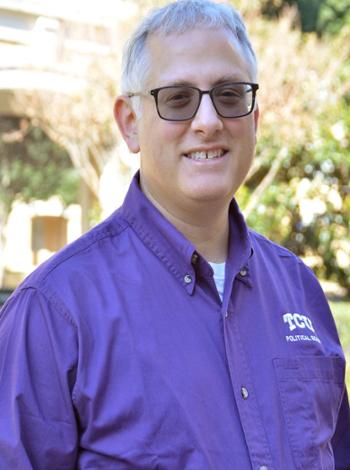One of the things that surprised me when I first got involved with interscholastic debate (I was a high school policy debater and later a coach) was that the most successful and enthusiastic debaters were not always the most successful classroom students. Many excellent debaters did not feel challenged by their courses, and for those students the promise of good grades was not a sufficient incentive to work hard. However, those students did feel challenged by debate; the idea of traveling around the state (and, for those who really excelled, the country) with the possibility of winning trophies and bragging rights motivated those students in a way that grades could not.
I began to use debate assignments in my political science classes with a view toward capturing that advantage of debate. I want to give students who might not be motivated by grades another motivation to learn and become invested in the material. In classroom debates, students are motivated by pride; they want to convince their classmates that their team has made the superior arguments.
I establish debates around a policy proposition, and I take care to find a position with strong evidence on each side. For example, in my International Politics course students have debated whether the United Nations Security Council should authorize the use of force against the Assad regime in Syria, and in my Politics of Japan class students have debated whether Japan should amend its constitution to remove Article IX (the Article which forbids Japan from having a military). Each student participates in one debate per semester, and I randomly assign students to a topic (which they receive a week before the debate) and a side. Ideally debate teams have four or five students each, with each student having a clearly defined job (either one speech or asking questions during cross-examination). Speech times are clearly delineated, and I am strict about enforcing them so that each student has a chance to participate and we can finish in one class period. I also give students a few minutes before each speech to prepare. Students not participating in a particular debate serve as a “jury” and fill out ballots after the class explaining which team they think won and why.
When I introduce the debate format and assignment at the beginning of the semester, I make a distinction between two types of argumentation: argumentation with a view toward proving that one’s side is right, and argument with a view toward uncovering the truth. I believe that both kinds of argumentation are important for global citizens. Being able to successfully advocate for a given side is a useful skill in many professions, including sales and the law. However, in my view, it is even more important that global citizens have the capacity to participate in argumentation for discovering what is true and right. To nurture this impulse, I require all students to write a reflection paper about how the experience of preparing for and participating in the debate has influenced their thinking on the topic. This is students’ chance to think through the topic on their own.
I have kept records on these reflection papers, which are summarized in Table 1. Of the 224 students that I gathered data on, only 35 ended up agreeing with the side that they were not assigned to. This group of 35 was more likely to attend class regularly and more likely to be a political science major or minor than were those that ended up agreeing with the side that they were assigned to. Perhaps those who attend more courses, political science majors, and political science minors are more likely to reach their own conclusion because they feel more investment in and ownership of the material. This data serves as a challenge to me as an instructor—in the future, how can I give students the intellectual tools and confidence to review a variety of arguments and reach their own conclusions?
| Disagree with (randomly assigned) side in debate | Agree with (randomly assigned) side in debate | |
| Total number of students | 35 | 189 |
| Percent female | 54.30% | 43.40% |
| Median final course grade | 85.01% | 85.20% |
| Median percent of classes attended | 91.89% | 86.67% |
| Mean year in school (1 is freshman, 4 is senior) | 2.89 | 2.93 |
| Percent political science major or minor | 57.14% | 44.97% |
Students tend to love the debates, as is clear both from the enthusiasm with which they participate and their comments in course evaluations at the end of the semester. I believe that debates work, particularly in political science classes, because they require students to find and articulate arguments in favor of a position (whether or not they agree with it). Debates do this in a way that is relatively novel and fun, but also intellectually rigorous. Ultimately, though, debates are most successful when they cause students to realize that the side that they were assigned to may not be correct, to think through all of the best arguments for and against a proposition, and to reach their own conclusion.
I invite you to visit my website for a sample debate format handout, debate reflection paper assignment, and debate ballot.
 This article was written by Michael Strausz, Department of Political Science, for the Fall 2014 Issue of Insights Magazine.
This article was written by Michael Strausz, Department of Political Science, for the Fall 2014 Issue of Insights Magazine.